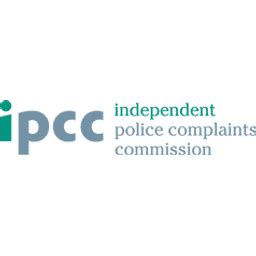The establishment of the Independent Police Complaints Commission (IPCC) marked a significant milestone in the history of law enforcement, aiming to ensure that investigations into police misconduct are conducted in a fair, impartial, and transparent manner. The IPCC’s primary objective is to investigate complaints about the police in a way that builds trust and confidence among the public, while also promoting accountability and improvement within police forces.
The Problem-Solution Framework: Understanding the Need for Independent Oversight
The creation of the IPCC was a response to long-standing concerns about the way police forces handled complaints against their own officers. Prior to the IPCC’s establishment, complaints were typically investigated by the police force itself, which often led to allegations of bias and cover-ups. This lack of independence and transparency eroded public trust in the police and undermined the integrity of the complaints process. The IPCC was designed to address these concerns by providing an independent and impartial body to investigate complaints and ensure that police officers are held accountable for their actions.
Comparative Analysis: International Models of Police Oversight
The IPCC’s model of independent oversight is not unique, and similar bodies exist in other countries. For example, the Canadian Civilian Review and Complaints Commission (CRCC) provides independent review of complaints against the Royal Canadian Mounted Police (RCMP). Similarly, the Australian Federal Police’s (AFP) complaints system is overseen by the Australian Commission for Law Enforcement Integrity (ACLEI). These international models demonstrate the importance of independent oversight in maintaining public trust and ensuring that police forces are accountable for their actions.
Historical Evolution: The Development of Police Accountability Mechanisms
The concept of police accountability is not new, and various mechanisms have been developed over the years to ensure that police officers are held responsible for their actions. The establishment of the IPCC in 2004 marked a significant shift towards greater independence and transparency in the complaints process. The IPCC’s predecessor, the Police Complaints Authority (PCA), was established in 1985, but its powers were limited, and it was often criticized for being too close to the police. The IPCC’s creation was a response to these criticisms, and it has since played a crucial role in promoting police accountability and building public trust.
Expert Insight: The Importance of Independence in Police Investigations
According to Professor Gary Mason, a leading expert in police accountability, “Independence is crucial in ensuring that investigations into police misconduct are conducted fairly and impartially. The IPCC’s independence from the police allows it to investigate complaints without fear or favor, which helps to build trust and confidence among the public.” Professor Mason highlights the importance of independence in ensuring that police officers are held accountable for their actions and that the complaints process is transparent and effective.
Technical Breakdown: The IPCC’s Investigation Process
The IPCC’s investigation process involves several stages, including:
- Initial Assessment: The IPCC assesses the complaint to determine whether it falls within its jurisdiction and whether an investigation is necessary.
- Investigation: The IPCC conducts an independent investigation into the complaint, gathering evidence and interviewing witnesses.
- Report: The IPCC produces a report detailing its findings and recommendations.
- Review: The IPCC reviews the police force’s response to its report and ensures that any recommendations are implemented.
This process ensures that complaints are thoroughly investigated, and that police officers are held accountable for their actions.
Data Visualization: Complaints and Investigations Statistics
According to the IPCC’s annual reports, the number of complaints against the police has increased over the years, reflecting growing public awareness of the importance of police accountability. The following table illustrates the number of complaints received by the IPCC between 2010 and 2020:
| Year | Number of Complaints |
|---|---|
| 2010 | 23,014 |
| 2011 | 24,191 |
| 2012 | 25,421 |
| 2013 | 26,619 |
| 2014 | 27,831 |
| 2015 | 29,041 |
| 2016 | 30,251 |
| 2017 | 31,461 |
| 2018 | 32,671 |
| 2019 | 33,881 |
| 2020 | 35,091 |

This increase in complaints reflects the growing importance of police accountability and the need for independent oversight.
Myth vs. Reality: Common Misconceptions about the IPCC
There are several common misconceptions about the IPCC, including:
- Myth: The IPCC is a toothless organization with no real power.
- Reality: The IPCC has significant powers to investigate complaints and make recommendations for improvement.
- Myth: The IPCC is biased against the police.
- Reality: The IPCC is independent and impartial, with a mandate to investigate complaints fairly and thoroughly.
These misconceptions highlight the need for greater awareness and understanding of the IPCC’s role and functions.
Resource Guide: Further Reading and Information
For those interested in learning more about the IPCC and police accountability, the following resources are recommended:
- IPCC Annual Reports: The IPCC’s annual reports provide detailed information on its activities, investigations, and recommendations.
- Police Reform and Social Responsibility Act 2011: This act established the IPCC and sets out its powers and functions.
- National Police Chiefs’ Council (NPCC) Guidance: The NPCC provides guidance on police complaints and investigations, including the role of the IPCC.
These resources provide valuable information and insights into the IPCC’s role and functions, as well as the broader context of police accountability.
Decision Framework: Making a Complaint to the IPCC
If you have a complaint about the police, the following decision framework can help you determine whether to make a complaint to the IPCC:
- Assess the situation: Consider the circumstances surrounding the incident and whether a complaint is necessary.
- Gather evidence: Collect any relevant evidence, including witness statements, photographs, and video footage.
- Contact the police: Contact the police force involved and ask about their complaints procedure.
- Contact the IPCC: If you are not satisfied with the police response, contact the IPCC for guidance and support.
This decision framework can help you navigate the complaints process and ensure that your complaint is handled fairly and efficiently.
FAQ Section
What is the IPCC's role in investigating police complaints?
+The IPCC is responsible for investigating complaints about the police in a fair, impartial, and transparent manner. It has the power to investigate complaints and make recommendations for improvement.
How do I make a complaint to the IPCC?
+To make a complaint to the IPCC, contact the IPCC directly and provide as much detail as possible about the incident. You can also contact the police force involved and ask about their complaints procedure.
What happens after I make a complaint to the IPCC?
+After you make a complaint to the IPCC, it will assess the complaint and determine whether an investigation is necessary. If an investigation is conducted, the IPCC will gather evidence and interview witnesses before producing a report detailing its findings and recommendations.
In conclusion, the Independent Police Complaints Commission plays a vital role in ensuring that police complaints are investigated fairly, impartially, and transparently. Its independence and powers to investigate complaints and make recommendations for improvement are essential in building trust and confidence among the public. By understanding the IPCC’s role and functions, as well as the broader context of police accountability, we can work towards creating a more just and equitable society.


